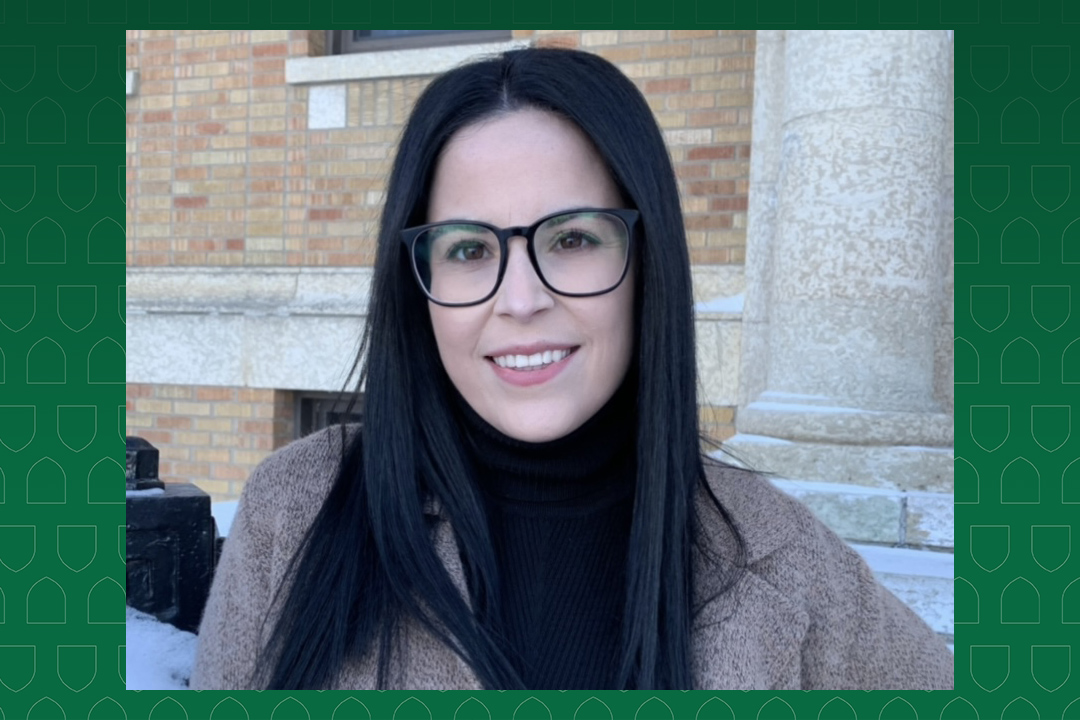
Political Studies student balances motherhood and community work with her studies to stay on track to graduate this year.
Jennifer Falconer, a member of the George Gordon First Nation, is in her fourth year of Political Studies with the College of Arts and Science at the University of Saskatchewan (USask).
By Kim FontaineFalconer is a mother and student and a constituency manager with her local Member of Parliament. According to Falconer, resilience is defined not necessarily by the degree of adversity you face, but how you rise to meet it, and for this reason she epitomizes resilience. As she said, “I wake up every day excited for a new challenge.”
Falconer is being recognized with a resiliency award at this year’s Indigenous Student Achievement Awards, to be held virtually on Feb. 4, 2021. The awards honour Indigenous students studying at USask in recognition of their academic excellence, leadership, research, community engagement and resiliency.
The award ceremony is part of Indigenous Achievement Week (IAW), which celebrates the successes and contributions of Métis, First Nations and Inuit students, staff and faculty within the context of this year’s theme: nīkānihk itohtētān, walking together into the future. IAW also offers a series of online events and workshops that everyone is welcome to participate in.
We asked Falconer a few questions about her USask journey.
Why did you choose Political Studies?
I originally started my university journey in the College of Education through the SUNTEP program. After a few years, I felt something was missing. I always had a mind for politics and a vision for change, but I didn't quite have the courage to take a leap into something that isn’t as traditional as nursing or teaching in the community I grew up in. After a lot of thought, I chose to pursue a three-year degree in politics. Over the course of time, that has now changed and shifted to wanting a four-year Bachelor of Arts with honours, so I could eventually pursue my master’s and learn as much as I possibly can. I have an action-driven attitude and I knew gathering as much knowledge as I can from USask would point me in the right direction.
What has helped you to stay motivated and committed to your studies?
My two daughters. I was a young mom and I knew I had an important choice to make at a young age to do everything possible to not only chase my goals and succeed in them, but also to carry out the expectations I set for myself. Throughout my time in my studies, there were small victories and hurdles I would overcome, and I looked at my journey as one stepping-stone at a time. I often get asked if I am tired of school because I have been in university for seven years now, but I am not tired of it yet.
How have your studies developed your knowledge, skills and leadership?
I wouldn’t be where I am today had I not chosen the field of political studies. Everything started shifting into place and I started learning more about politics. I found myself gaining more confidence to volunteer in campaigns, talk policy and keep my head held high, especially being an Indigenous woman in the field. From completing my Indigenous Governance and Politics certificate, I learned valuable skills that would make me marketable in Indigenous communities with developments of First Nations planning. I also spent a great deal of time writing and researching the First Nations water crisis in Canada throughout the last few years and I hope one day soon to apply this knowledge for policy changes.
Has someone in your life inspired you to get to where you are today?
Both my grandma and grandpa who raised me. I grew up being taught the value of honest hard work. When I think about wanting to succeed and make people proud, these are two of the first people who come to mind who I hope are proud when they see what I have accomplished.
This year’s Indigenous Achievement Week theme is nīkānihk itohtētān, walking together into the future. What does this mean to you?
This is an important theme, especially in the political climate we are in. We seem to be drifting as a society and becoming more cynical in our everyday attitudes. To me walking together into the future means we think of our future as human beings on this earth as a collective effort to preserve our planet, our society and our vision in a more united front.

